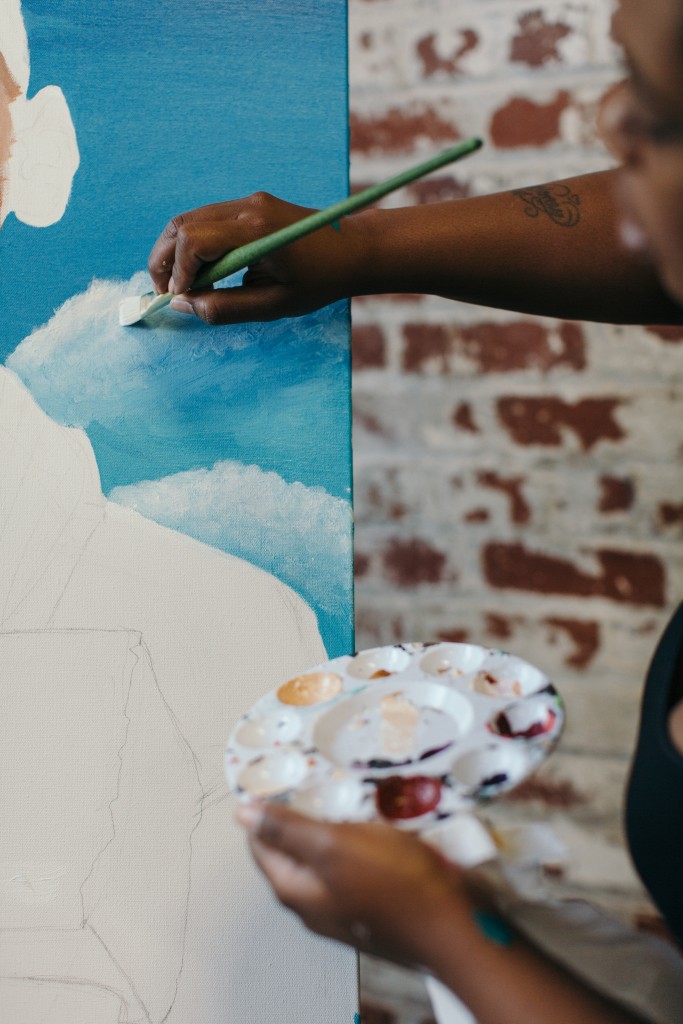If I’ve learned anything about freelancing over the past few years, it’s that unless someone does it, and does it for a decent amount of time, they probably have no idea what it actually is…they might not even know it exists. That gap in knowledge like impacts the way people view everything from entrepreneurship, to wealth-building, to general business advice.
Case in point — today I heard someone, someone with a pretty large social following, suggest startups as the quickest alternative to traditional jobs in terms of building financial security (wealth-building). I’m not trying to put anybody on blast here, but the thought process behind that statement is really important, and it’s one you know if you’ve spent much time talking business and earning with Black people.
Take a listen to how a lot of us talk about business and you’ll notice a dangerous dichotomy — you either labor 40hrs a week for The Man, or you work to become the Mark Zuckerberg of some Black-adjacent niche. Dassit. No other options.
9-to-5 or startup.
Bi-weekly check or venture capital.
401k or IPO payout.
This…all of this…is so wrong. Earning income, like so many other things in life, exists on a spectrum and we live in a time where it’s essential to be able to navigate that spectrum as your life changes. You have options if you don’t want to take the traditional employment route, and most of them have better odds than startups’ 90% failure rate, with a lot less risk to boot.
I’m of the (very strong) opinion that freelancing is one of the safest ways you can dabble in stepping out of one end of the spectrum, and for many of us, safety is incredibly important — not only for survival, but also our mental health. I don’t believe that someone is a better entrepreneur or business person simply because they’re willing to take bigger risks, and I think we all need to walk away from that mindset if we’re going to move into the modern world of career development and earning with any demographic success.
All that is why I want to talk really quickly about four different ways you can use freelancing to build your career. Yep…you heard me right… ”use freelancing.” That might sound strange, but freelancing isn’t just something you do after you leave a career or as an alternative career — it’s a tool in navigating the world of professional development, networking, and yes earning, and it’s one everyone should have at least a basic ability to use.
Continuing/Transitioning Your Career
This is what I did, and frankly, it’s what a lot of freelancers do.
You start in traditional employment, learn a skill and/or industry, possibly get sick of your job to the point of no return, and go out on your own. Taking this route means you have a foundation in not only the services you offer, but the clients you sell to. It also means you’ve got a solid understanding of the culture of your industry and your clients’ pain points.
You might take the skills you learned and transition them to a new industry (like an accountant leaving tech and moving to not-for-profits) or vice versa (like an engineer becoming a writer for engineering firms.)
Regardless, it’s probably the fastest track to higher earning on your own, lowest risk, and safest path to solo income you’ll find.
Kicking Off Your Profession
Heard people talking about “project-based” or “project list” resumes? If not, pay attention, because this is what a lot of managers are looking for…supposedly they want to know what you can “do” over what you’ve learned or achieved.
You know that whole “need experience to get experience” conundrum? Freelancing can be a way to solve that puzzle without relying on that employer who wants 3-5 years’ experience for an entry level position.
Use freelancing to build a resume, not to mention strong referrals. (If you’re looking to get going as a completely new freelancer, start here.)
An Easy Way to Network
I was AWFUL at networking when I was employed. I went to all kinds of professional mixers (Black and otherwise) and other events, and over 10+ years, I can honestly say none worked out for me.
Part of that is because I’m an introvert (that’s just not how we connect), and part is because of the nature of my industry (it’s all about connections being made through work, not events.) Now though? I’m making contacts left and right, getting referrals and full time job offers…LinkedIn is even useful! I think this partially ties to the previous point, and that’s that people are happy to make connections once they know you can actually get results and are self-motivated. Few things prove that that better than being a freelancer and building proof that your work gets results for your clients.
Building Your Brand
This is more for indie artists and journalistic writers out there (I don’t like the idea of focusing on personal branding for most freelancers), but if you have zero interest in being employed and just want to build a portfolio and a brand, freelancing can be a great way to do that while getting paid.
Of course, this kind of work might not fit with your image goals, and selling yourself as part of your freelance product can have specific risks as a minority, but freelancing is strong encouragement to refine what you do, who you do it for, and how your image resonates in the world.
As much as freelancing isn’t for everyone, in a modern earning environment, everyone should be able to sell their work on their own. You might combine traditional employment with one or two of these, or spend your entire career as a freelancer…it’s all about flexibility, and that’s what makes being able to work as a freelancer so great.

Leave a Reply